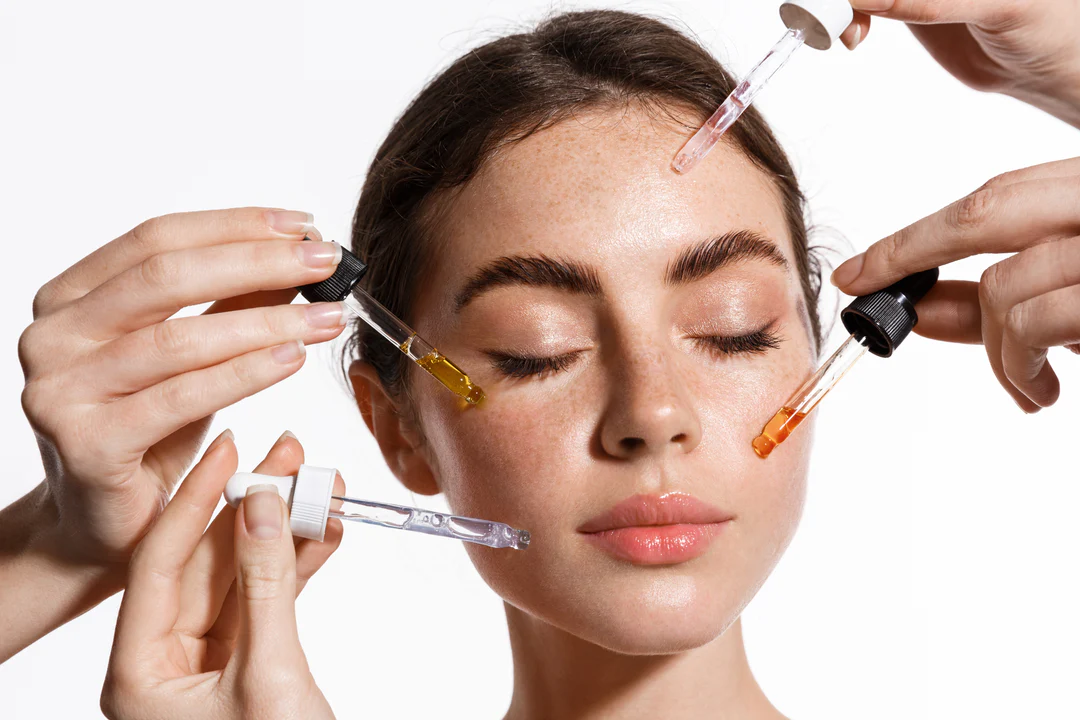
Can peptides be used with tretinoin?
Peptides and tretinoin are two ingredients in skincare that have pretty potent effects, but not as many people know about them. But just because they don’t have the same status or household names as glycolic acid, hyaluronic acid, or retinol, you’ll still be impressed by their benefits and effectiveness in your skincare routine.
What are peptides?
Peptides occur naturally in the body and are chains of amino acids that form the building blocks of proteins on the surface of the skin. When these synthetic peptides are formulated for use in skincare products, they communicate with the cells, i.e. H. They can tell the cells in the lower layers of the skin to increase collagen production. Over time, this leads to a plumper, more youthful complexion with visibly reduced signs of aging. Don’t forget you can learn more about peptides on The Beauty Insiders blog.
What is tretinoin?
Retinoic acid, also known as all-trans retinoic acid, is a prescription skincare ingredient. Originally used to combat severe acne and frequent breakouts, it has also been used to combat signs of hyperpigmentation, such as sun damage and acne scars, as well as premature aging, significantly reducing fine lines and wrinkles. Due to the effectiveness of this ingredient, it is highly recommended that you add it to your daily skincare routine with your doctor’s approval. If you would like to learn more about Retinoic Acid and its benefits, read our dedicated blog post.
Now that you have a better understanding of how these ingredients work, we will now explore whether peptides can be used with Retinoic Acid.
Can peptides be used with Retinoic Acid?
Yes, it is widely believed that peptides can work with Retinoic Acid as they work effectively with other forms of retinol. I recommend using this powerful duo in your evening routine to avoid excessive UV damage. Start by applying a Retinoic Acid-rich product, especially a serum, as this will remove dead skin cells and debris from the surface. Then apply your peptide product as it will penetrate the skin quickly and effectively.
As with all effective skin ingredients, it is important to ensure that your skin is healthy and able to develop a tolerance to it. Therefore, always consult your doctor before using any new products on your face.
Can Retinoic Acid and Copper Peptides be used together?
No, it is recommended to avoid using copper peptides and Retinoic Acid at the same time. Copper peptides increase blood flow to the skin, which can often cause minor skin injuries to slightly worsen. Combined with the common skin redness and flushing side effects that occur when using any form of retinol, you can find that using these products together can increase skin sensitivity and cause a lot of skin irritation. Therefore, it is best not to layer these ingredients on your face, but to alternate them. B. Take copper peptides in the morning and tretinoin in the evening.
What not to mix with tretinoin?
If you are already using tretinoin, it is very important not to apply other effective acne-fighting ingredients to your skin. These ingredients include salicylic acid, benzoyl peroxide, sulfur, and other forms of retinol. This can cause severe skin irritation, redness, dryness, and other side effects. If you have concerns or questions about using skincare products, consult your doctor or dermatologist for comfort.
What is tretinoin compared to retinol?
Both tretinoin and retinol have similar and effective skin benefits. The main difference is the strength and effectiveness of the skincare formula. Tretinoin is a prescription ingredient and is pure retinoic acid, which means it is very effective. Retinol is also effective, but is also easier to incorporate into your skincare routine. That’s because retinol is not only available as a prescription medication, but it’s also found in over-the-counter formulas that are lower in active retinoids.
What shouldn’t peptides be used with?
Copper peptides have a variety of benefits for hair and skin, and their popularity has skyrocketed in recent years. Here are some of the main benefits:
Improved blood circulation promotes hair growth by stimulating hair follicles
Increased collagen production reduces the appearance of fine lines and wrinkles
Improved skin firmness due to increased collagen and elastin production
Antioxidant benefits help protect the skin from daily stress and free radical damage
Skin tone becomes more even, dark spots, acne scars, and hyperpigmentation are reduced, and the skin’s surface is repaired
When combining peptides with other powerful skin ingredients, there are some popular ingredients to avoid.
Retinol
Tretinoin
Vitamin C
AHA/BHA, such as glycolic acid and salicylic acid
Are peptides good for wrinkles?
Absolutely! Peptides are very effective for reducing fine lines, wrinkles, and loss of skin firmness. As I mentioned before, peptides are building blocks for collagen and elastin in the lower layers of the skin. By increasing collagen production, you’ll get a plumper, smoother complexion with youthful elasticity.
Can peptides be used in the morning?
Yes you can! Using peptides in the morning can boost collagen production and increase blood circulation, leaving your skin looking totally improved, healthy, and radiant. You can also use peptides twice a day, morning and night, for best results, alternating with tretinoin to avoid unnecessary irritation.
Do peptides firm your skin?
Yes, they do! This is because peptides stimulate collagen production. You’ll notice an improvement in the overall look and feel of your skin. Regular use of peptide-rich products can combat signs of sagging, lack of elasticity, and loss of skin firmness.
I hope this answers your questions about peptides and tretinoin, but if you have any questions, don’t forget to follow us on Instagram, you’ll find me there!


